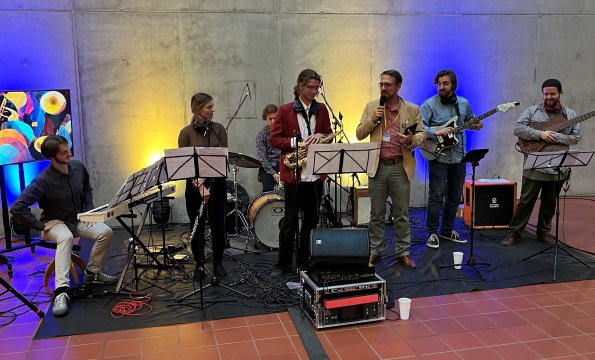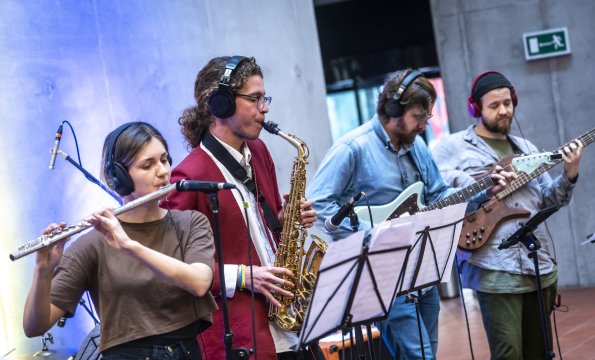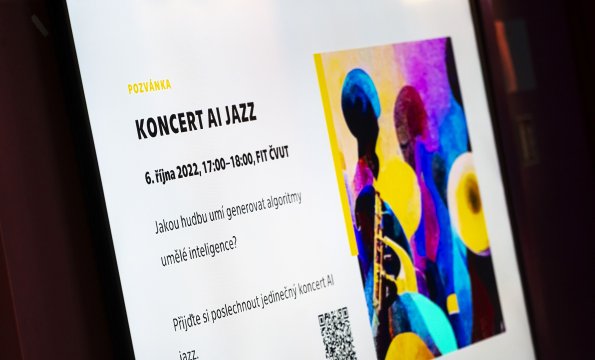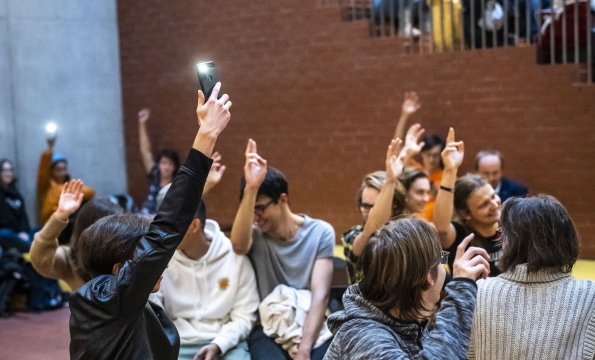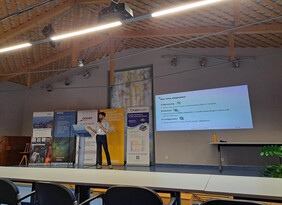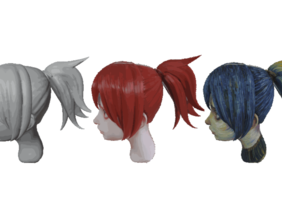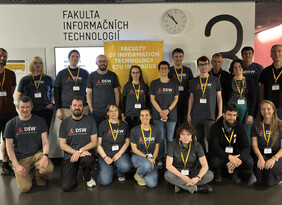The potential to generate jazz music using artificial intelligence algorithms has been tested at FIT CTU. Experts rewrote a piece of music generated by artificial intelligence algorithms into sheet music to make it accessible to professional musicians, who were then able to rehearse it. They provided a comparison between a live performance and a purely electronic interpretation. The AI jazz concert event took place on 6 October 2022 at FIT CTU.
The composition, originally generated by artificial intelligence using GPT-2 algorithms for creating musical compositions, was first performed by a jazz band of students from the Ježek Conservatory and Higher Vocational School and then in a purely electronic interpretation. The idea was to compare a live performance and an electronic performance. Would we notice a difference when first hearing it? Or would we not have known if we had not been informed? The musical enjoyment was complemented by a visual projection of the images that AI algorithms had generated for this piece.
The concert was moderated by Ing. David Pešek, a technology scout and teacher in the field of entrepreneurship and support for innovation.
“It is interesting to see all the things that are called artificial intelligence today, and where such artificial intelligence can find applications,” says David Pešek, and he adds: “We are becoming more and more convinced that AI will not fully replace human beings, but will only replace them in selected tasks where critical or creative thinking is not required. At the AI jazz concert, this could be heard in the differences between the performance of a piece by a machine as against the performance by a group of live musicians consisting of keyboard, drums, guitar, bass guitar, flute and saxophone.”
Artificial intelligence algorithms are used in many fields today. They recommend content on the internet, forecast the weather and help to provide traffic safety. Artificial intelligence will find its way into the world of art for sure. For example, we can expect AI algorithms to do some of the mechanical work of creating musical pieces in the not-too-distant future. They will provide a range of musical outputs, which the producer will then only have to correct. Instead of composers, algorithms may generate music for less demanding listening environments (waiting rooms, supermarkets, etc.). Nevertheless, a lot of questions still remain. For example, to what extent can the production activity involved in assembling the music resulting from partially- generated templates be considered a creative activity, and will the same rules or similar rules of the Czech Association of Authors and Composers (OSA) apply to publicly produced algorithmically- created musical compositions?
FIT CTU offers a bachelor specialization in Artificial Intelligence, which provides students with the necessary knowledge of machine learning mechanisms, neural networks and orientation in the complicated areas of algorithms, which are nowadays a bit excessively referred to as artificial intelligence. Students can test their knowledge in practice during their studies and participate in research on how to use these algorithms in image recognition, weather and traffic forecasting, recommending web services to clients, and countless other projects focused on this area.

